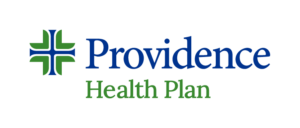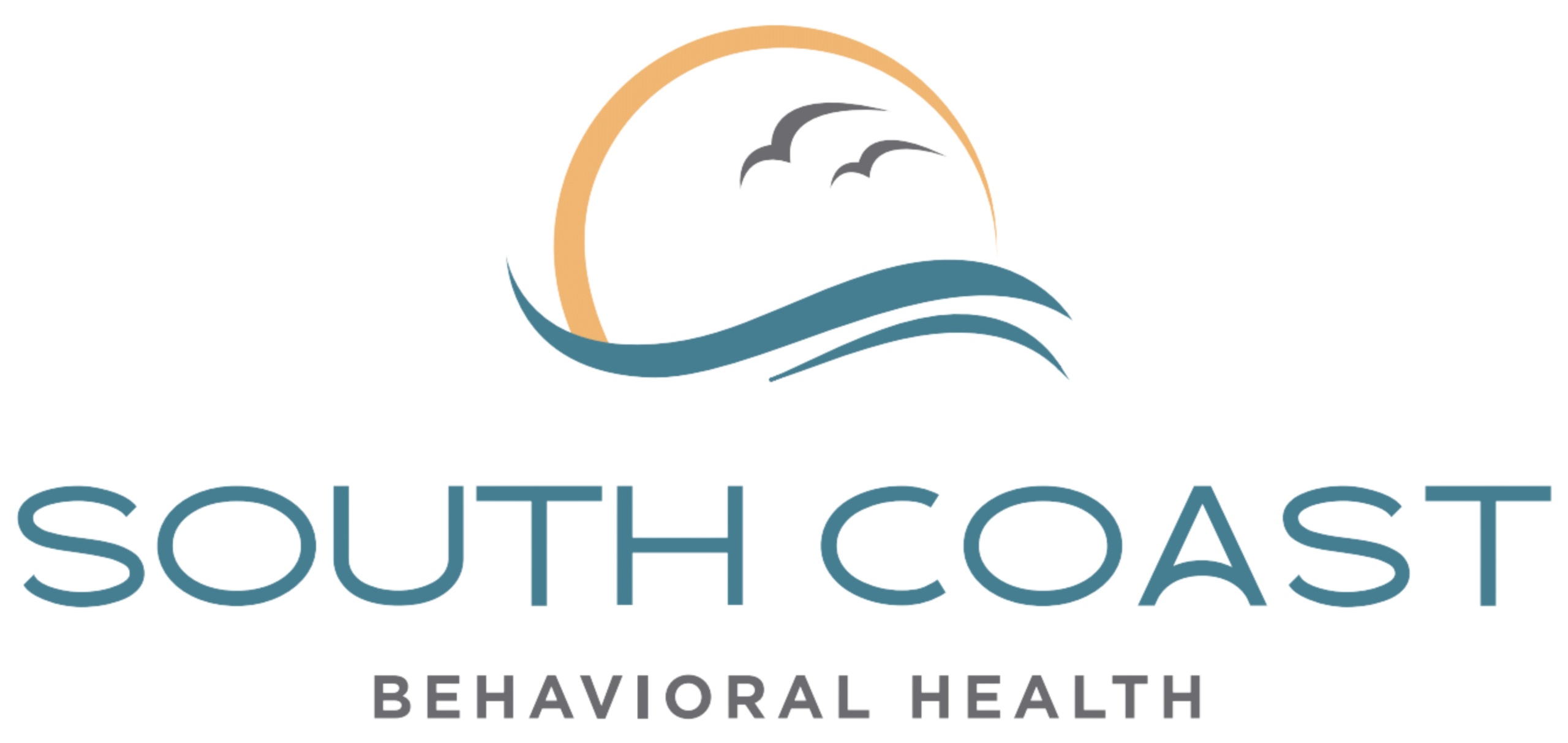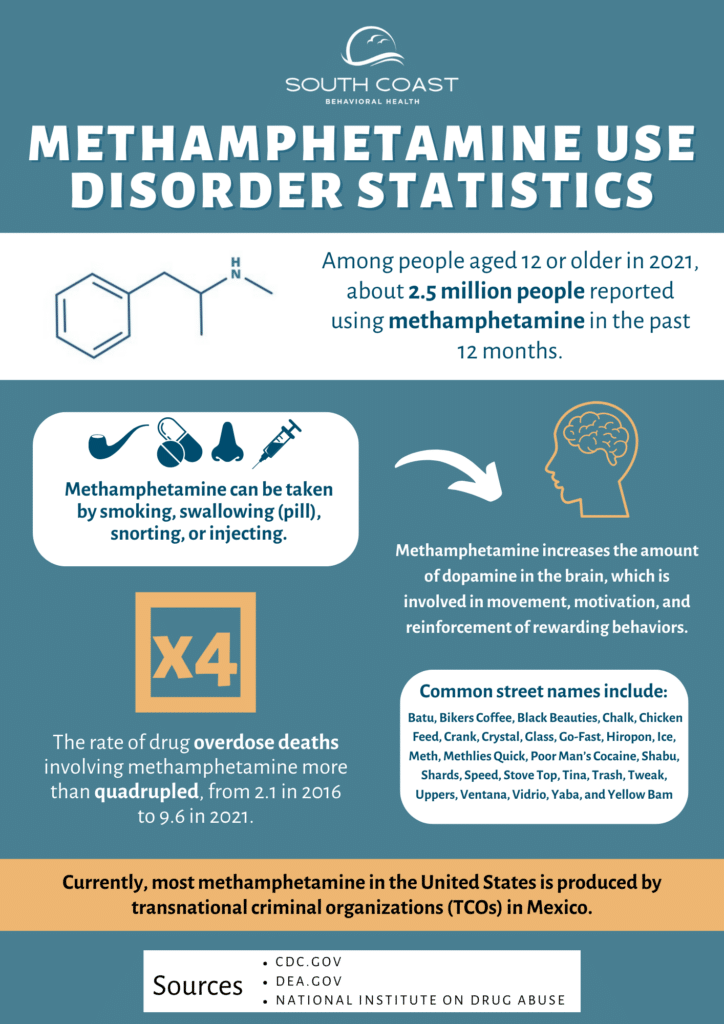Meth Addiction
Meth addiction, also known as methamphetamine use disorder, is a deeply concerning and challenging public health issue. It centers on the compulsive and destructive reliance on methamphetamine, a highly potent stimulant drug. Meth addiction wreaks havoc on individuals’ lives, impacting their physical and mental health, relationships, and overall well-being.
The drug’s intense euphoric effects make it alluring to users, but prolonged use can lead to addiction, characterized by cravings, tolerance, and withdrawal symptoms. Understanding meth addiction is essential for recognizing its signs, seeking treatment, and supporting people recovering from meth addiction.

What Is Meth Addiction?
Meth addiction, or methamphetamine use disorder, revolves around the compulsive and harmful use of methamphetamine, a potent central nervous system stimulant. Methamphetamine is known as “meth,” “crystal,” “crystal meth,” “ice,” or “glass” on the streets. Meth is a synthetic drug that produces intense feelings of euphoria, increased energy, and heightened alertness. People often start using meth due to its pleasurable effects, enhanced focus, and temporary relief from fatigue or depression.
Meth addiction develops as users repeatedly seek the initial euphoria and increased energy but find that they need larger doses to achieve the same effect. This tolerance leads to a vicious cycle of increasing consumption, which can quickly result in addiction.
What Are the Signs and Symptoms of Meth Addiction?
Meth addiction manifests through a wide array of signs and symptoms, reflecting the drug’s profound impact on physical and mental health. Recognizing these signs is essential for early intervention and support. Here are common indicators of methamphetamine abuse:
Physical Signs:
- Dilated Pupils: Meth use often leads to enlarged pupils.
- Skin Problems: Users may have sores, acne, or “meth mites” (a sensation of bugs crawling on the skin).
- Weight Loss: Severe appetite suppression can result in rapid weight loss.
- Dental Issues: “Meth mouth” includes severe dental decay, tooth loss, and gum problems.
- Twitching or Tremors: Users may experience muscle twitching or tremors.
- Excessive Sweating: Methamphetamine use can cause profuse sweating.
Behavioral Signs:
- Intense Euphoria: Meth users exhibit a heightened sense of well-being and energy.
- Hyperactivity: Restlessness, talkativeness, and rapid movements are common.
- Erratic Behavior: Impulsivity, risky actions, and unpredictable conduct.
- Social Isolation: Users may withdraw from friends and family.
- Neglect of Responsibilities: Meth addiction often leads to neglect of work, school, and family obligations.
- Paranoia and Agitation: Users may become paranoid, anxious, or irritable.
Psychological Signs:
- Cravings: A strong urge to use meth.
- Tolerance: Requiring increasing amounts for the desired effect.
- Withdrawal: Experiencing depression, fatigue, and anxiety when not using.
- Psychosis: Prolonged use can lead to hallucinations, delusions, and severe mental health issues.
Recognizing these signs and seeking professional help is crucial, as methamphetamine addiction can result in severe physical and mental health problems, damaged relationships, and legal issues if left untreated.
Meth Addiction Statistics
Meth addiction statistics highlight the severity of the drug impact — millions of Americans are addicted to meth. Research on drug abuse and addiction highlights the far-reaching consequences of meth on individuals and society as a whole.
Statistics on meth abuse addiction include:
- According to the National Survey on Drug Use and Health (NSDUH), over 2 million people in the United States reported using methamphetamine in 2020.
- Methamphetamine misuse can lead to severe health consequences, including dental issues (“meth mouth”), cardiovascular problems, cognitive impairments, and mental health disorders.
- The production and distribution of methamphetamine pose significant public safety concerns, often involving illegal drug manufacturing operations known as “meth labs.”
Meth addiction is a highly destructive condition, often necessitating professional treatment and support to break free from its grip and regain control over one’s life.
When Do You Need Meth Addiction Treatment?
Seeking meth addiction treatment is crucial when the detrimental impact of methamphetamine use begins to interfere with an individual’s life. It’s time to seek help when:
- Loss of Control: If one finds it challenging to control or stop meth use, despite a desire to quit.
- Physical and Mental Health Decline: When meth use leads to severe physical health issues (e.g., dental problems, heart complications) or mental health deterioration (e.g., psychosis, severe anxiety).
- Relationship Strain: Addiction often strains personal relationships, causing conflicts with loved ones and social isolation.
- Occupational and Financial Issues: Neglecting work, school, or financial responsibilities due to meth use.
- Legal Consequences: Involvement in illegal activities related to methamphetamine.
- Erratic Behavior: If one exhibits unpredictable, risky, or aggressive behaviors linked to meth use.
Meth addiction or misuse can result in severe health problems, legal trouble, financial ruin, and damaged relationships. Seeking treatment at the first signs of addiction is essential to mitigate these consequences and work towards recovery.
What Is Meth Addiction Treatment Like?
Meth addiction treatment is a comprehensive process aimed at helping individuals break free from the grip of methamphetamine dependence. Here’s an overview of what treatment typically entails:
- Assessment and Evaluation: Treatment begins with a thorough assessment by healthcare professionals to determine the extent of meth addiction and any co-occurring mental health issues. This evaluation forms the basis of a personalized treatment plan.
- Detoxification (Detox): For individuals physically dependent on methamphetamine, medically supervised detox may be required. Although meth detox primarily focuses on psychological withdrawal rather than physical symptoms, medical supervision ensures safety and comfort.
- Medically Assisted Treatment (MAT): Unlike some other substances, there are no specific medications approved for treating methamphetamine addiction. However, MAT may involve medications to manage specific symptoms or co-occurring disorders, such as depression or anxiety.
- Psychotherapies: Evidence-based psychotherapies play a central role in meth addiction treatment. Cognitive-Behavioral Therapy (CBT), contingency management, and Motivational Enhancement Therapy (MET) are commonly used to address the psychological aspects of addiction.
- Holistic Programs: Many treatment centers integrate holistic approaches such as mindfulness, yoga, and nutritional counseling to promote overall well-being and address the mind-body connection in recovery.
- Dual Diagnosis Treatment: Co-occurring mental health disorders, often linked to meth addiction, are addressed simultaneously. Dual diagnosis treatment recognizes the complex interplay between addiction and mental health, offering integrated care to address both conditions effectively.
- Aftercare and Relapse Prevention: After completing primary treatment, individuals receive aftercare plans, which may include ongoing counseling, support groups, and relapse prevention strategies. These plans empower individuals to maintain their commitment to sobriety and navigate potential pitfalls.
Overall, meth addiction treatment is a multifaceted process tailored to individual needs, emphasizing long-term recovery and providing individuals with the tools and resources necessary for a healthier, substance-free life.
How Long is Meth Addiction Treatment?
The duration of meth addiction treatment can vary significantly based on individual factors, including the severity of addiction, the presence of co-occurring disorders, and the individual’s progress. Recovery from meth addiction typically follows these stages:
- Detoxification (Detox): Methamphetamine detox typically lasts from a few days to a couple of weeks. This phase focuses on managing the acute withdrawal symptoms, which can include depression, fatigue, and intense cravings.
- Inpatient/Residential Treatment: For individuals with severe meth addiction, inpatient treatment programs often span 30 to 90 days or more. These programs provide intensive therapy and support in a structured environment.
- Outpatient Programs: Outpatient treatment programs can range from several weeks to several months, offering a less intensive but ongoing approach to recovery.
- Aftercare and Maintenance: Achieving and maintaining sobriety is a lifelong commitment. After completing formal treatment, individuals need ongoing support to navigate the challenges of daily life. This may include ongoing counseling, support groups, and relapse prevention strategies.
Professional treatment centers play a crucial role in helping individuals create relapse prevention plans tailored to their unique triggers and challenges. These plans empower individuals to navigate potential pitfalls and maintain their commitment to sobriety, emphasizing that recovery is a lifelong journey deserving of continual attention and support. Meth addiction recovery is not just about achieving initial sobriety; it’s about maintaining it for the long term, recognizing that addiction is a chronic condition that requires ongoing management.
Meth Addiction Treatment at South Coast Behavioral Health
South Coast Behavioral Health (SCBH) is committed to providing comprehensive and individualized meth addiction treatment designed to help individuals break free from the grip of methamphetamine dependence. SCBH’s approach is rooted in evidence-based practices and a deep understanding of the unique challenges presented by meth addiction. Here’s an overview of SCBH’s approach to meth treatment:
- Assessment and Customized Plans: SCBH starts with a thorough assessment to create personalized treatment plans tailored to each individual’s specific needs and circumstances.
- Medically Supervised Detox: If needed, SCBH offers medically supervised detoxification to ensure a safe and comfortable withdrawal process.
- Levels of Care: SCBH offers a continuum of care, including inpatient/residential treatment, partial hospitalization programs (PHP), intensive outpatient programs (IOP), and outpatient counseling. This range of options allows clients to transition seamlessly through different stages of treatment as their needs evolve.
- Evidence-Based Therapies: Clients benefit from evidence-based psychotherapies, including Cognitive-Behavioral Therapy (CBT), contingency management, and Motivational Enhancement Therapy (MET), to address the psychological aspects of meth addiction.
- Holistic Approach: SCBH integrates holistic approaches such as mindfulness, yoga, and nutritional counseling to promote overall well-being and address the mind-body connection in recovery.
- Dual Diagnosis Treatment: SCBH specializes in addressing co-occurring mental health disorders alongside addiction, recognizing the complex interplay between the two.
- Aftercare and Relapse Prevention: After completing treatment, SCBH provides clients with aftercare plans, ongoing support, and relapse prevention strategies to help maintain long-term sobriety.
SCBH’s client-centered care, evidence-based practices, and holistic approaches foster an environment conducive to healing and recovery. They empower individuals to achieve lasting freedom from methamphetamine addiction and regain control over their lives. If you are struggling with methamphetamine abuse-related issues, get help now. Contact us at SCBH for guidance and support.
Get A Confidential Assessment From A Recovery Specialist
Meth Addiction Treatment in Orange County, CA
At South Coast Behavioral Health, our commitment is to help individuals struggling with drug addiction achieve lasting sobriety and improved overall well-being. We provide the tools, support, and guidance needed to navigate the journey to recovery successfully. If you or a loved one is in need of treatment for a meth addiction issue, SCBH offers a variety of treatment options suited to your individual needs. Contact us today to start the road to recovery.
We provide meth addiction treatment for men within our medical detox and residential treatment centers in Irvine, CA.
We offer meth addiction treatment for women at our medical detox and residential treatment centers in Huntington Beach, CA.
We provide meth addiction treatment for men within our residential inpatient facility in Costa Mesa, CA.
We provide meth addiction treatment during our PHP and IOP programs in Newport Beach, CA.

















